In my marketing career, I’ve worked on both sides of the client-agency relationship. I’ve experienced genuine strategic partnerships where the resulting work was greater than the sum of its parts and I’ve experienced dysfunctional alliances that were transactional and even combative.
One of the biggest changes to the client-agency relationship in the last 15 years is the increasing role of marketing procurement. To keep marketing fees in check, brands started putting procurement departments in charge of the relationship. Many consumer packaged goods companies are entering a new cost-cutting wave — most famously with the “zero-based budgeting” trend driven by 3G Capital when it merged Kraft Foods and Heinz in 2015.
Marketing procurement as a discipline is still finding its footing. In an ANA survey, only 47% of clients and only 10% of agencies said that procurement added value to client-agency relationship. In late 2015, PepsiCo scrapped its marketing procurement department altogether, shifting the function back to brand teams.
But, two-thirds of ANA members said that marketing procurement was here to stay.
At its best, marketing procurement brings specialized experience to create strategic value beyond price. At its worst, marketing procurement is a wedge that can treat strategic partnerships like commodities. There can be a focus on the lowest price above all else, a lack of understanding of marketing, and quality too often takes a back seat. Agencies respond by over-promising and understaffing, assigning B-teams and C-teams to projects.
In the long run, treating creative services like a commodity will only lead to commodity work.
Here are a few related cartoons I’ve drawn over the years:
“The Agency Bid” May 2009
“Agency Pitch” July 2012
“Client-Agency Relationships” April 2015
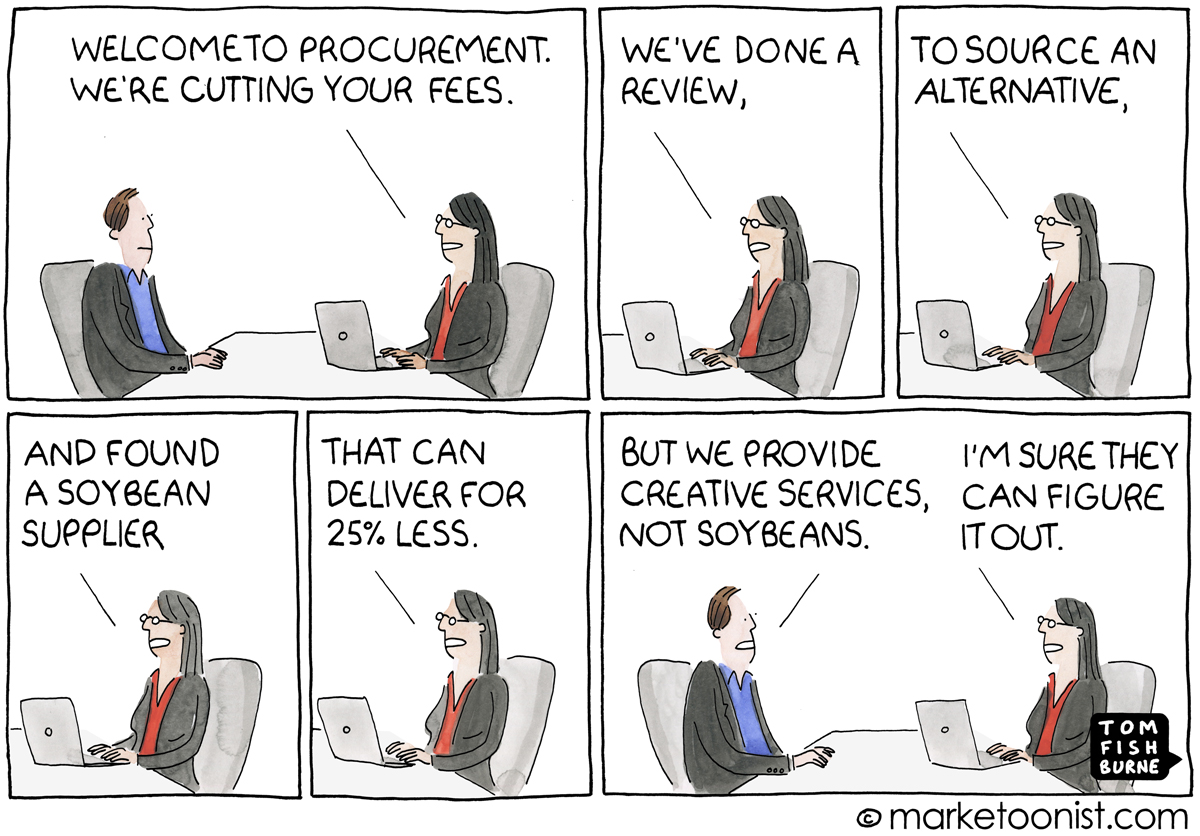
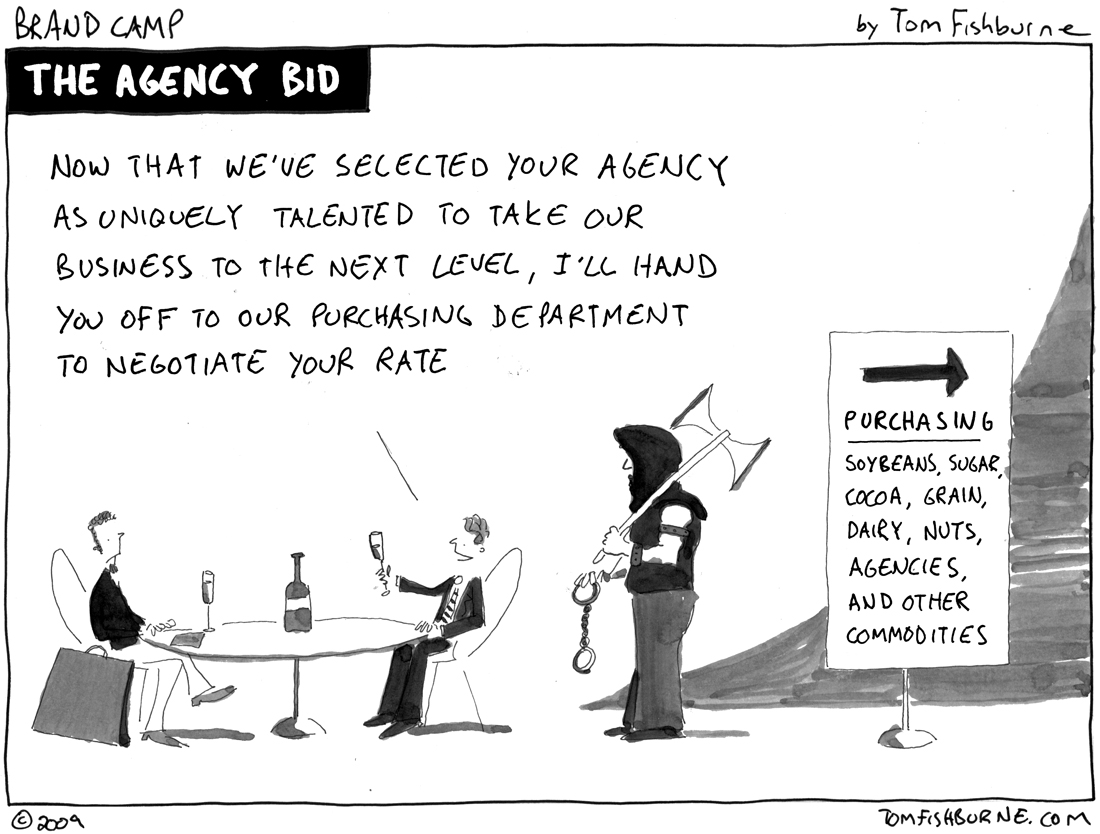
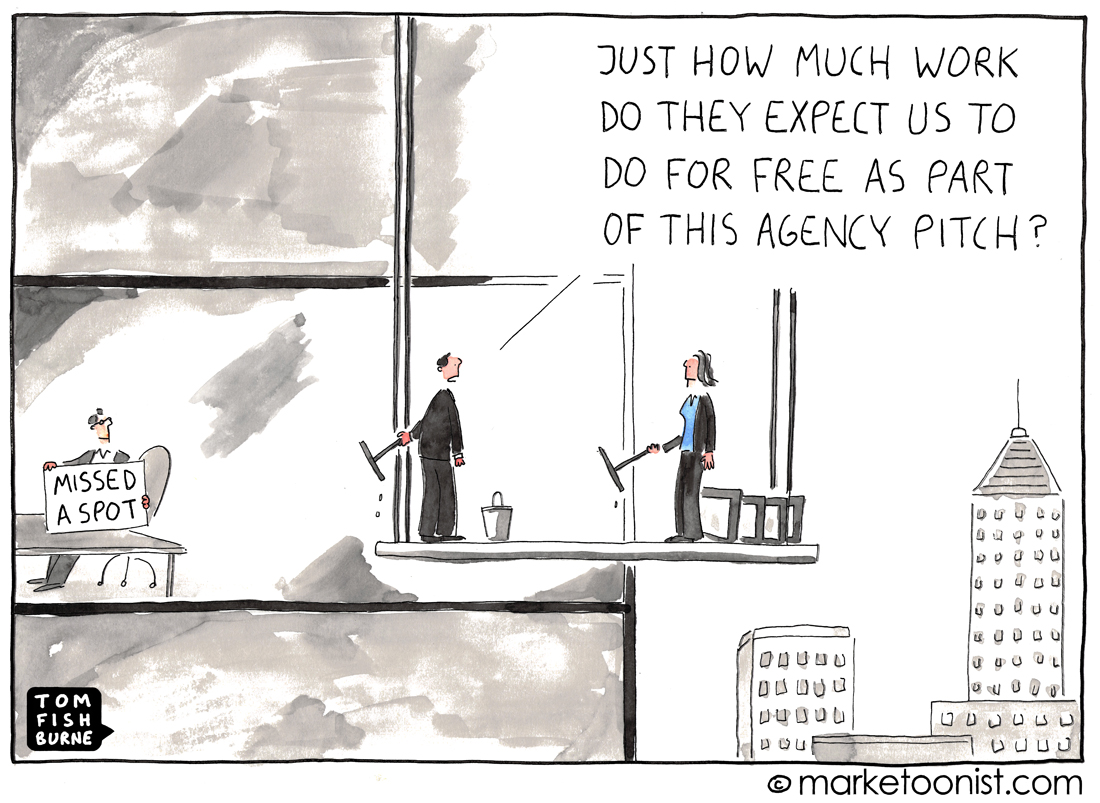
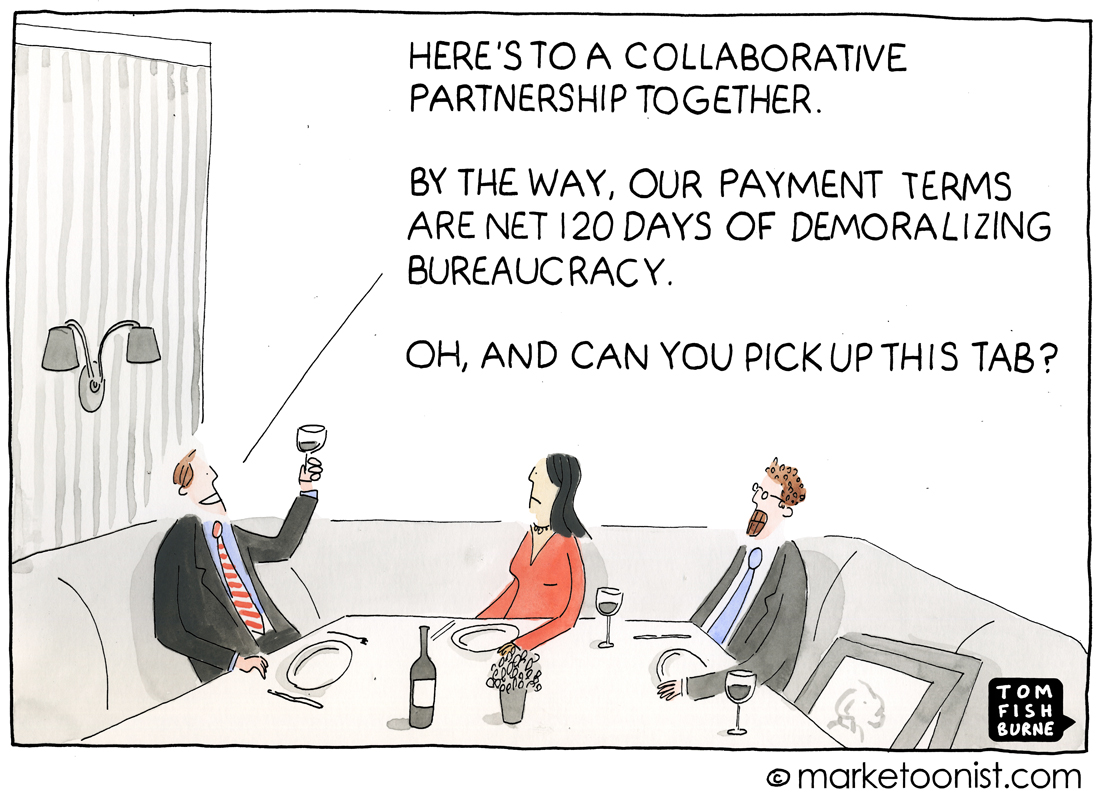
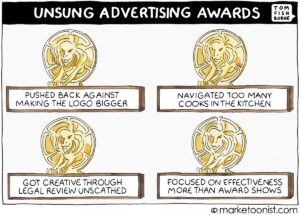
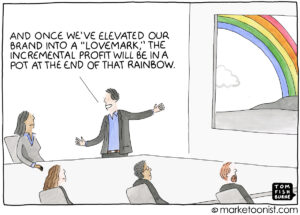
Steve Schildwachter says
Obviously she is a bean counter.
Mariana Quiroga says
Spot on cartoon and observations. There are some companies and agencies exploring negotiations where agencies get paid more for performance, which is great as long as the performance expected is indeed something the agency can influence. The Procurement team in this case needs to be very skilled to assign a value to that influence/ value proposition – which is not something they can do by comparing prices with other suppliers, but only by comparing the upside to the cost of missed business/ not growing/ becoming irrelevant to consumers. That cost stays for a long time and it’s much harder to overcome.
Eisaiah Engel says
Great points, Mariana! My take is that creative produced by soybean farmers may be cheaper in the short run, but in the long run, it’s going to erode the brand’s perception in the marketplace. I agree with you that savvy procurement plays a vital role in keeping a brand competitive.
Doug says
@Mariana – unfortunately the skillsets and goals you outline are predicated on the idea that the client’s marketing procurement team WANTS to reimburse the agency based upon correctly attributed KPIs. In reality, their motivation is, first and foremost, to save the company money – this is what their group is measured upon by leadership, after all. Unless the entire group’s success metrics are measured not by cost savings, but by net added-value, then you’ll never get the results you want. However, if the marketing procurement team is structured that way, then they are by definition redundant – the marketing team itself is already making their agency suggestions based upon added value.
Joe Adamski says
I’m always reminded of Wannamaker’s quote, “Half of my marketing budget is wasted, I just can’t tell which half.” Marketing procurement, done well, is about getting the right level of agency support to accomplish what the organization needs to at the right price – and no more. Nice to have services, accounts teams structured to be overly top heavy (often driven by the markets themselves!), or tasks/processes that should be done organically should all be critically examined and removed. Additionally, KPIs are important to bring into the equation particularly if there’s any bonus involved in the SOW. Marketers are often times focused on the creative and the relationship with the agency – having a third party procurement group involved helps to have the tough conversation and allows marketers to maintain the relationship. Marketing procurement is a specialized skillset within the overall procurement rubric – buying services versus goods is different and that needs to be recognized by procurement and organizational leadership. At the end of the day, the focus for all parties needs to be on achieving the organization’s goals efficiently and effectively.